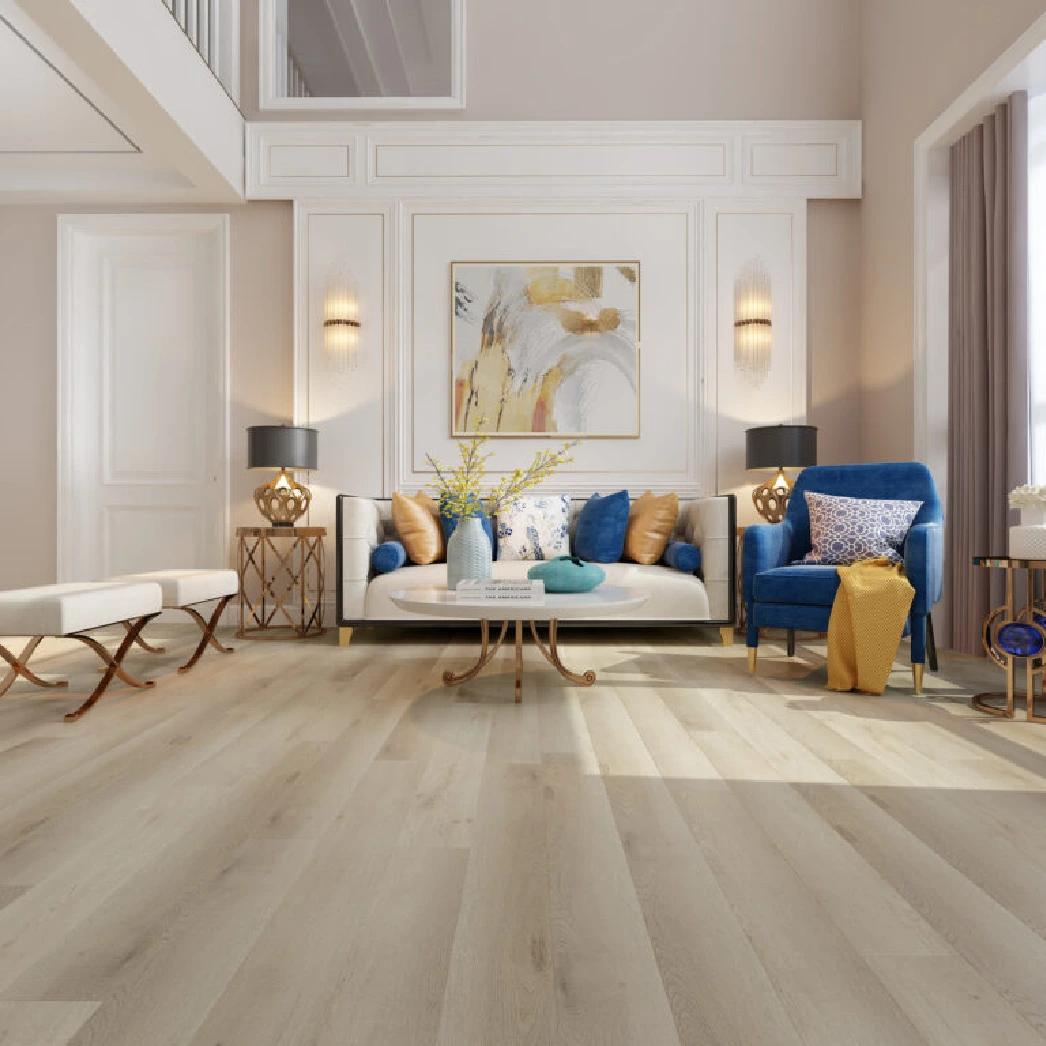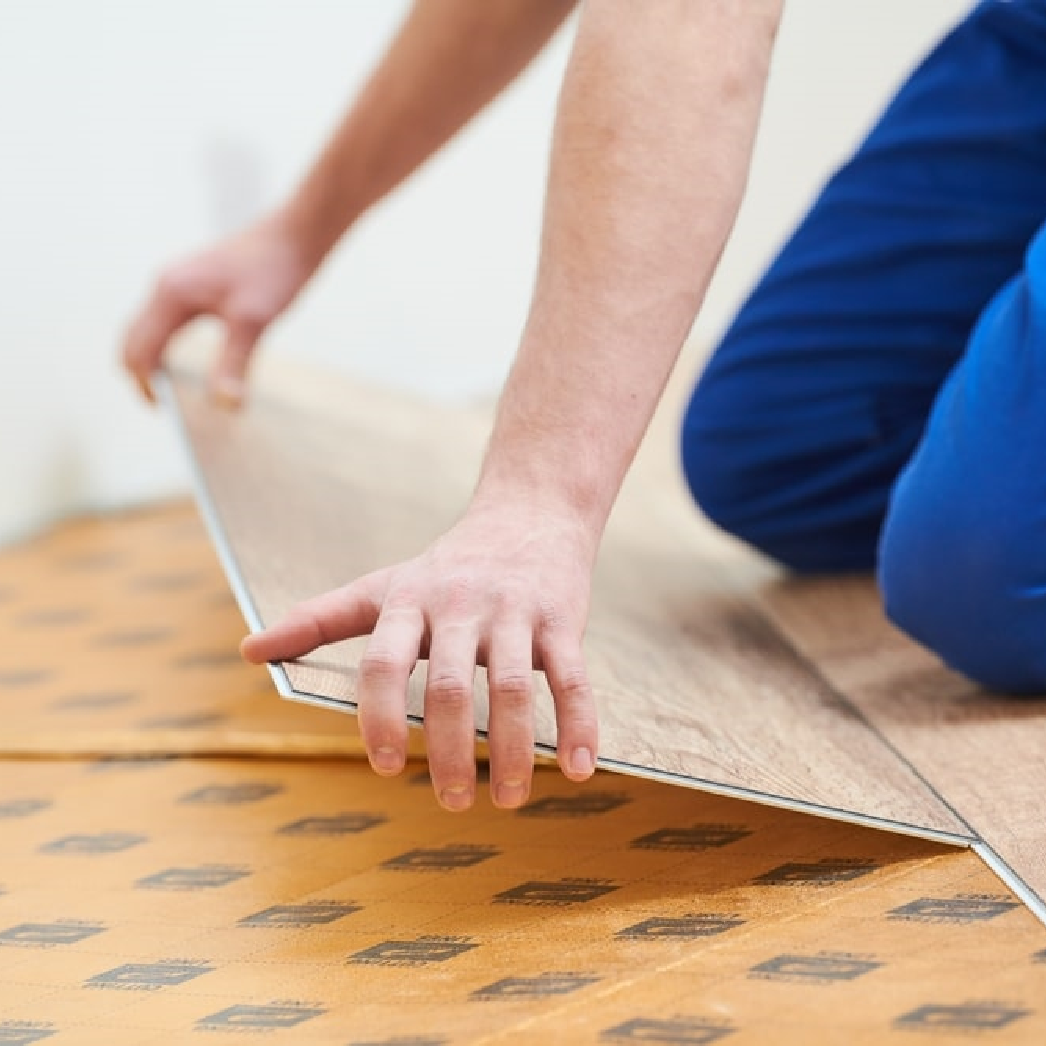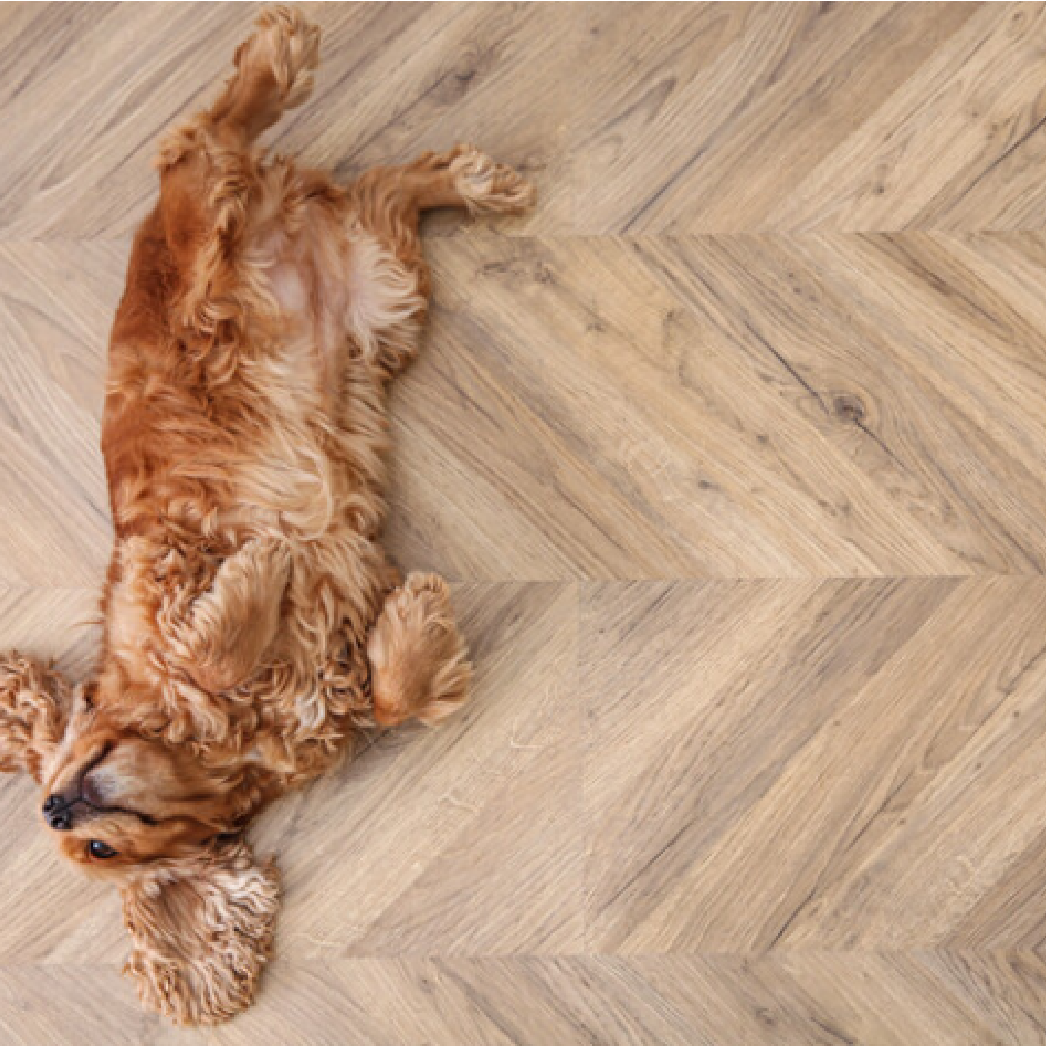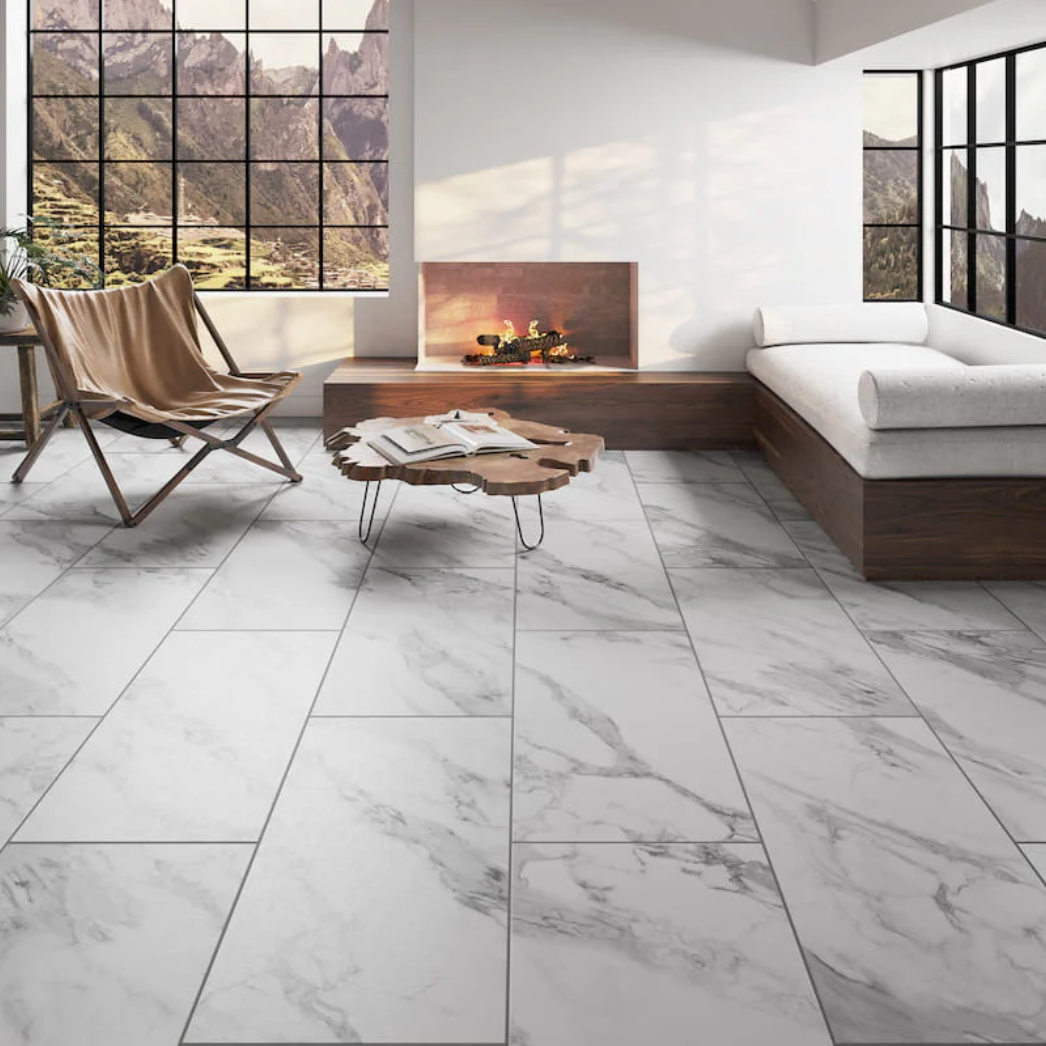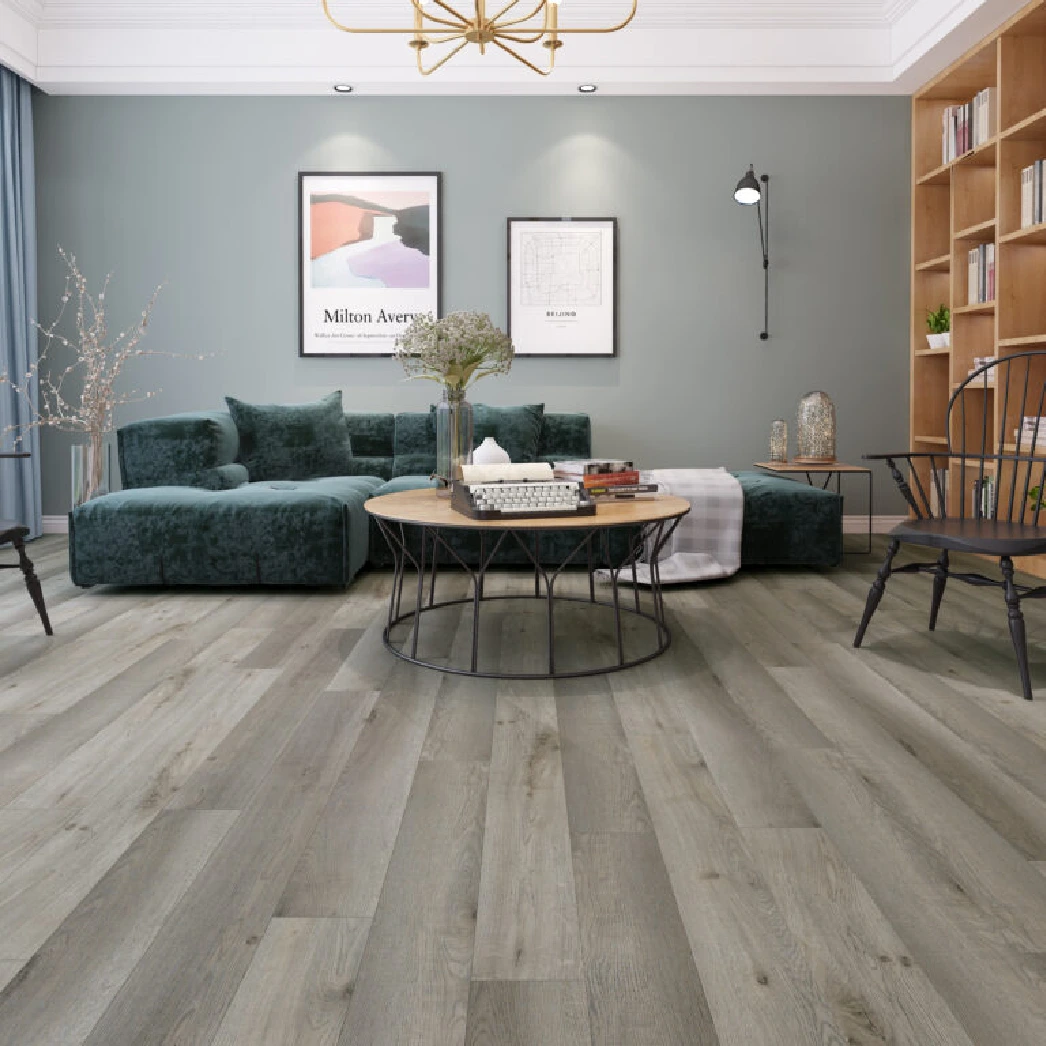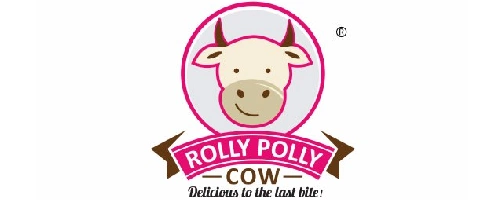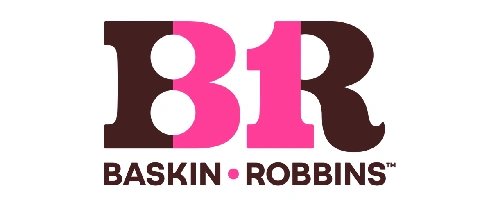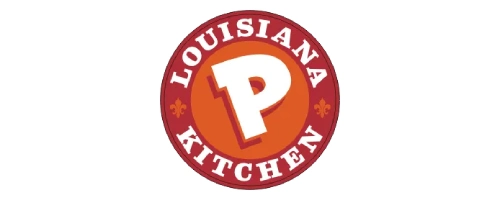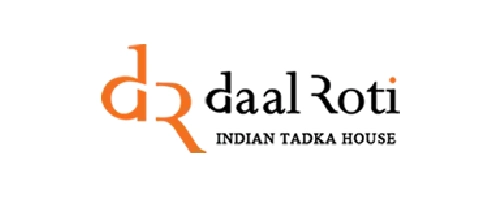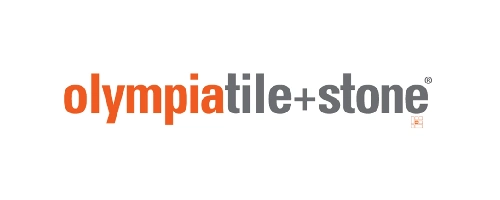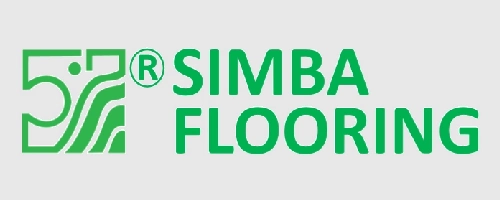
Vinyl
Vinyl flooring is a versatile, durable, and water-resistant flooring option made from synthetic materials, typically PVC (polyvinyl chloride), which makes it a popular choice for both residential and commercial spaces. It comes in various forms, including sheet vinyl, vinyl tiles (VCT), and luxury vinyl planks (LVP). Sheet vinyl is a continuous, flexible roll of material, ideal for large areas with minimal seams, while vinyl tiles are individual squares, often used in commercial settings for easy maintenance and replacement. Luxury vinyl planks (LVP) mimic the appearance of wood, stone, or ceramic tiles, offering a more realistic look and feel with advanced textures and high-definition prints. flooring typically ranges from 2mm to 10mm in thickness. Thicker vinyl offers more durability, sound absorption, and cushioning underfoot. Vinyl flooring typically ranges in thickness from 2mm to 10mm, with higher thickness providing greater durability and sound insulation. The wear layer, which can range from 6 mils to 30 mils, determines the floor's resistance to scratches, stains, and general wear. Vinyl comes in various formats, including sheets (typically 6 to 12 feet wide), tiles (usually 12”x12” or 18”x18” or 24"x24" or 12"x24"), and planks (ranging from 5 to 9 inches wide and 36 to 72 inches long).Vinyl is available in different finishes, including matte and textured, and is often enhanced with a wear layer and UV coating for added protection. Vinyl flooring is waterproof, making them ideal for high-moisture areas like bathrooms and kitchens. Vinyl is easy to install, with options for glue-down, click-lock (floating), or peel-and-stick installation, and it is low-maintenance, requiring only occasional sweeping and mopping. However, while durable, vinyl flooring can be prone to dents or scratches from heavy furniture or sharp objects, and it may need to be replaced if damaged beyond repair.
